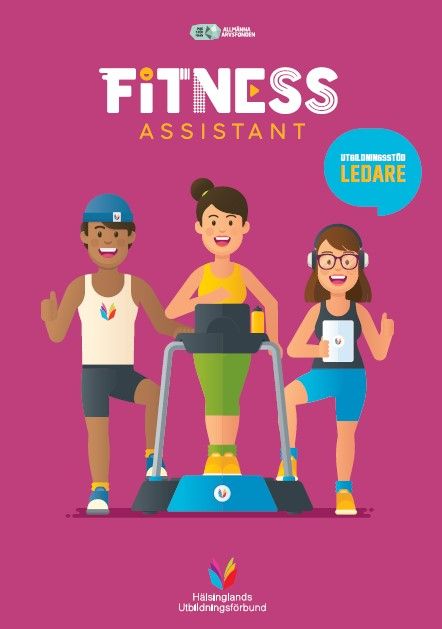Press release -
The world’s first PTs for people with intellectual disabilities
As a group, people with intellectual disabilities have poorer healt and now the University of Gävle is training coaches especially for them. “ We are unique in the world to offer a study programme for PE teachers in adapted physical activity, and now we are taking yet another step,” says Sven Blomqvist, senior lecturer in sports science at University of Gävle.
The new training for instructors for people with some form of intellectual disability is a collaboration between the University of Gävle and the Hälsingland Education Association. Research shows that this group often has health problems and needs help with exercise. The instructors gain good knowledge about the intellectually disabled and about training, and now three of them have degrees as "PT basic-special".
“ We have had this focus ever since the sports science education started 10 years ago, an education that is still unique in Sweden, and now we are developing it further,” says Sven Blomqvist.
Anna Häggqvist, will soon start her new job as a recreation coordinator at Gävle Municipality, where she will develop sports and outdoor activities.
“It is easy to become anxious about saying or doing the wrong thing, but in our study programme, we were given good tips about how to interact and engage with people with intellectual disabilities. Everyone must be offered a place in sports, as it can have such great effects,” Anna Häggkvist says
Emilia Holkedahl would like to broaden her knowledge and will therefore take a master’s degree in occupational health. She thinks that is very rewarding to work with this group.
“What I appreciated most about the programme was its many concrete examples on how to include this particular group of people in a positive manner. Having acquired this knowledge feels very useful and has meant a lot for my own development,” Emilia Holkedahl says.
Alexander Utsten, applied to the study programme at University of Gävle for its focus on adapted physical activity and after graduation he will start working with rehabilitation for, for example, older people in Skövde.
“I have always believed that everyone should have a place in society and in Gävle I have acquired useful knowledge for my new job. It is a perfect programme to gain the insight that we all have different abilities and that we need to meet people where they are,” Alexander Utsten says.
An image-based health journey

The purpose of the image-based learning material is to make the participants understand the connections between their actions and their well-being.
It contains practical pieces of advice like: “I shouldn’t drink so much soda because it is not good for me.” “I will put my phone away when I go to bed because sleep is important for my health.” “I shouldn’t sit still watching films for a long time. It is better to get up and move around a little bit.”
“When we talk to the course participants, it becomes clear that their new knowledge will be beneficial for their health journey. Our students have acquired knowledge about such health journeys and their knowledge will become very important for society,” Sven Blomqvist says.
Text: Douglas Öhrbom
Sven Blomqvist, senior lecturer in sports science at University of Gävle
Phone: 070-341 95 01
E-Mail: sven.blomqvist@hig.se
Anna Häggqvist, student, study programme in sports science
Phone: 076-174 53 77
Emilia Holkedahl, student, study programme in sports science
Phone: 072-727 01 93
Alexander Utsten, student, study programme in sports science
Phone: 076-343 34 57
Topics
- Health, Health Care, Pharmaceuticals
Categories
- research
- university of gävle
- sports science programme
- pt
- sven blomqvist
- health
- rehabilitation
- exercise
- intellectually disabled
- adapted physical activity
Education and Research at a Scenic Campus.
The University of Gävle has approximately 17 000 students, more than 50 study programmes and second-cycle programmes, about 1 000 courses in humanities, social and natural sciences and technology.
Research Profiles
Built Environment and Health-promoting Working Life are the general research profiles of the higher education institution. Important parts included are Spatial Planning with a specialisation in Sustainable Built Environment and Musculoskeletal Disorders with the purpose to prevent work-related injuries. In 2010, the higher education institution received permission to carry out third-cycle programmes in the profile area of Built Environment.
The higher education institution has applied for permission to carry out third-cycle programmes in technology, humanities and social sciences.
